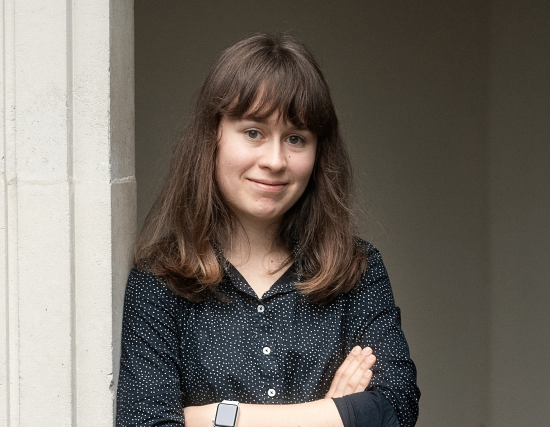Did You Know First-Year Students Can Also Be Amgen Scholars? Meet Yulia Kostina
"Although the Amgen Scholars Program was advertised as a program for undergraduates, I never thought it would be possible for first-year students to get in."

Yulia Kostina
Moscow, Russia
Host University: Ludwig-Maximilians-Universität München (LMU)
Home University: Ludwig-Maximilians-Universität München (LMU)
Amgen Scholar Year: 2017
Major: Biology
Expected Graduation: 2019
Journey to Science
What’s the larger significance of your Amgen Scholars research? What’s your ultimate career goal?
This summer I worked in computational neuroscience basic research, and thus the project I was participating in is not directly relatable to real-life applications. The main focus was constructing a statistical model for grid cells, a recently discovered type of neuron involved in spatial navigation in rodents. The model would allow us to estimate and quantify the neuron's selectivity for different inputs and thus bring us closer to an understanding of how these cells code for space. However, there is more to this topic than spatial navigation research: Studies of grid cells and related neural circuits can contribute to our understanding of how high-end cortices in mammals process information. These are all small but important steps toward comprehension of cognition in humans and other mammals.
Before I was accepted into the Amgen Scholars Program, I was quite sure about a career in academia, but this summer ultimately convinced me that university-based research is a job with which I would be happy.
Academic and Professional Ambitions
How did you become interested in science?
I think my interest in science is a result of multiple inclinations. First, I find a basic joy in finding out things no one has thought about before. Second, I have an interest in establishing causal relationships between scientific and everyday phenomena: Did event A cause event B? What are the consequences of event B? How can I find out why C didn't work and make it work? I think alone these constant reflections gave me the motivation to spend time with science and to become better at it in school. There was also a classical positive feedback scheme at work: What you are interested in, you study more, and what you study more, you become better in and then consequently more interested in. After some years of this reinforcement, I couldn't imagine a different career for myself. (When I was younger, I wanted to become a musician and still have a bit left of this childhood dream.)
Why did you apply to the Amgen Scholars Program?
One day, I was searching the LMU website for application information and stumbled upon the Amgen Scholars Program. It immediately reminded me of the science olympiads I used to travel to in my younger school years. Moreover, it presented a rare opportunity to conduct real research as an undergraduate, which was particularly important for me as a student interested in neuroscience.
Although the Amgen Scholars Program was advertised as a program for undergraduates, I never thought it would be possible for first-year students to get in. So, in my first year, I didn't really consider applying and just attended an event about the Program, which took place at LMU two weeks before the deadline to see how I could apply next year. I asked the program coordinators a couple of questions, and they convinced me to apply as a first-year student. To my big surprise, I was accepted! This confirms the rule: If you don't apply, you 100% get rejected, but if you do, there is always a chance. I never regretted applying as a first-year student because I started reading about the labs' research immediately after the application and didn't feel a strong lack of knowledge or experience during the program.
What aspects of the program did you enjoy most? What do you love about the Amgen Scholars Program?
A nice surprise was that by participating in the Amgen Scholars Program I gained two “families” at once -- the Munich Amgen Scholars and my lab. Never before was I was surrounded by so many bright and talented, but, at the same time, kind-hearted and cooperative people. Our numerous discussions about science, philosophy, and life in general brought us forward in our life and career plans significantly. I also totally loved the social activities both the program and scholars organized.
I enjoyed being given almost complete independence in the lab: I could develop the project in directions I was interested in, but also had to interpret results and troubleshoot on my own. I think this was a crucial aspect that further convinced me to pursue a science career: Although things didn't work most of the time, the project never stopped being fun.
The ultimate highlight was the Europe symposium. I especially enjoyed the “Lives in Science” lecture series. Hearing all these outstanding scientists talk about their career paths, often anything but straightforward, made my friends and me bolder in some of the decisions we were not confident enough to make.
To learn more about the Amgen Scholars Program, please visit AmgenScholars.com and check out the #AmgenScholars hashtag on Twitter. Follow @AmgenFoundation to stay up to date with all STEM-related news from the Amgen Foundation.

